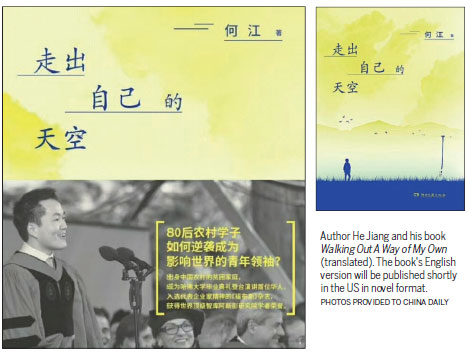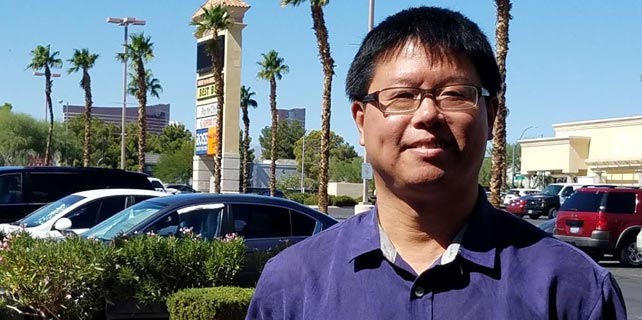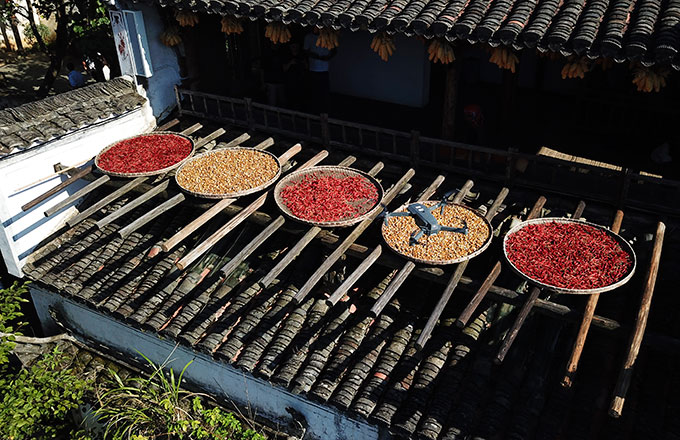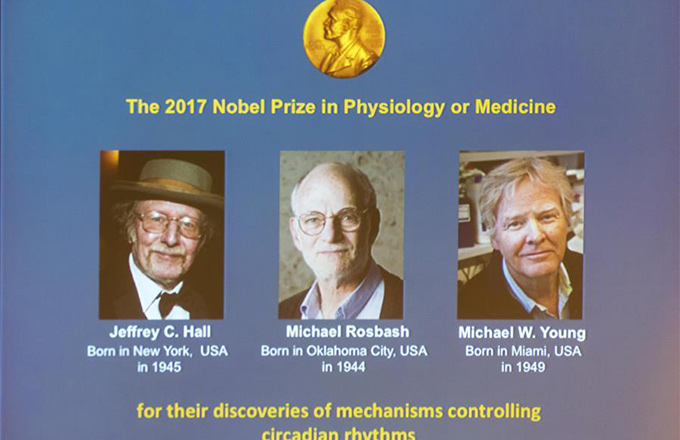Harvard pioneer's book tells story of a vanishing rural China

When He Jiang started to tell one of his Harvard professors about growing up in rural China, the professor suggested he write down his story.
He, the first Chinese to deliver a Harvard University commencement address, has published that memoir.
The book is in Chinese and titled Walking Out A Way of My Own (translated) with 200,000 characters. It records the different aspects of rural life in China at the end of 20th century. The book's English version will be published in the US shortly.
What inspired He to write the book were his occasional chats with noted historian Niall Ferguson, a professor at Harvard, about five years ago.
After listening to a lecture by Ferguson, He wanted to share his thoughts on the rise of China's economy and the changes in Chinese society. He told Ferguson that he was born in a traditional village in China, later relocated to town for middle school, and then went to college in Hefei, the capital of Anhui province, before heading to Harvard in Cambridge, Massachusetts.
Ferguson said He's unique experiences were like "a miniature version of the Industrial Revolution".
With that support, He began to collect stories about the village he grew up in from his early memories.
"When stitching them together, a panorama of rural life will unfold," He said.
"This is a story of migration and generosity, of the humanism, which makes life socially valid, and it is a tale of how a family produced a remarkable son whose efforts went on to make effective his vision of scientific truth," Kevin McGrath, professor of American poetry at Harvard University, wrote in the book's foreword.
He, now a 29-year-old postdoctoral fellow at the Massachusetts Institute of Technology, grew up in a small village with limited educational opportunities.
He graduated in 2009 from the University of Science and Technology of China in Hefei - one of China's top universities - with a bachelor's degree, and was accepted into Harvard's PhD program on a full scholarship the same year.
In January, He made the 2017 Forbes "30 under 30" list of promising entrepreneurs, innovators and "game-changers" in the healthcare category.
Forbes described He "as a farmer in a village with no cars, electricity, or running water. His ramshackle school once collapsed in a rainstorm. As a postdoc at Harvard, he used a new technology called single-virus tracking, super-resolution imaging to understand more about how influenza infects cells, and discovered human genes with strong anti-viral effects. He's now applying the same techniques to neurons and white blood cells. His other passion: getting science and medicine to places they aren't reaching, like his own village, where his mother once treated his spider-bite with fire."
He said the book contains a lot of meaning. "It's not just a memoir about myself, but about my family and the rural life I lived in the village," He said.
"With the modernization of China, some traditional lifestyles have fallen by the wayside. People living in the city may have a sense of curiosity and alienation about country life," He said.
"So by writing this book, I answered two simple questions: How did country folks live a life? and what is the real rural life?" He said.
"I hope the rural life and people I wrote about in the stories could arouse the nostalgia of those who are rural-to-urban migrants and might be able to record the era that is now closing," He said.
He atypically wrote the draft in English. "Because translating English into Chinese would be easier," He said.
After finishing the draft, He translated it into Chinese himself. Editors in China and the US advanced the draft in different directions.
The prose style of the draft has been kept for the Chinese version; for the English version, "the book will be adapted into a novel in consideration of American readers' preference, which will be published as a co-written novel", said He.
In May 2016, the biochemistry PhD delivered a speech representing Harvard's 13 graduate and professional schools at the commencement.
"After only five years, I changed, the people I mentioned in my stories changed, and the rural life in China changed," He said.
"For those who know only the China of present-day Beijing and Shanghai, He Jiang's memoir is a vivid introduction to the (almost) lost world of rural China," wrote Ferguson.
"His own story is an inspiring one of academic ascent, from his father's farmyard to Harvard Yard. But it is his vivid portrayal of the life he left behind that I most admire. Although a scientist by training, He is a memoirist of great skill, whose light and yet affecting touch put me in mind of the young Chekhov," Ferguson wrote.
"He Jiang has accomplished a most spectacular and wonderful memoir that will soon become a cultural classic, telling of how it is that education changes lives," McGrath said.
"The book is a beautifully rendered account of a rural childhood and the mystery of human ambition; it speaks of how a young man became one of the leading research scientists in our postmodern world," McGrath wrote.
xiaohong@chinadailyusa.com
















